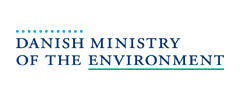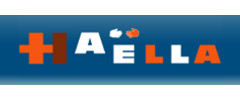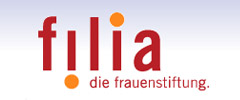The Fourth CEHAPE task force meeting
The Fourth meeting of CEHAPE Task Force took place in Limassol, Cyprus, on 16 - 17 October 2006.
30.10.2006 |Sascha Gabizon
Children‘s Lack of Access to Safe Water and Sanitation in Rural Areas of the EECCA Region (ppt)
Human Faecial Bacteria (ppt)
The Task Force is established in order to facilitate and stimulate implementation of the Children’s Environment and Health Action Plan for Europe (CEHAPE). Diana Ikreva from NGO Earth Forever (Bulgaria) represented European ECO-Forum at this meeting. Austria and Sweden brought young people to the meeting, plus there were 2 young people who were elected by the youth conference last year.
The countries shared their experience in preparing national CEHAPs. Cyprus and Armenia presented their national plans during the meeting. The representative of Cyprus noted that they relied on external funding (mainly EU) for the national CEHAP process. Armenia stressed that there is almost no funding for the national CEHAP process.
ECO-Forum raised a question about NGO and youth involvement in national CEHAP activities. The Armenian representative answered that intersectoral nature of the CEHAP was the most difficult. Though it is extremely difficult to work with NGOs and youth, they are trying to find ways to involve NGOs and to increase the intersectoral involvement.
The Austrian Chair shared the experience of his country. The National CEHAP Task Force in Austria is an intergovernmental body. The Ministry of Environment and the Ministry of Health have prepared a draft CEHAP and communicated the draft with the public. They also have a special school mobility program managed by the Ministry of Environment.
In Lithuania and Czech Republic, there will not be separate national CEHAPs documents. They will incorporate CEHAP in various existing programs and action plans.
A special session was devoted to environment and health monitoring programmes, with an emphasis on water monitoring programmes. The Deputy Minister from Kyrgyzstan made a presentation stressing that priority of national CEHAP is supply of population with drinking water of high quality. In Kyrgyzstan, part of the population has no access to drinking water supply; lots of drinking water supply systems are in very poor condition.
The countries shared their experience in implementation of CEHAPE Regional Priority Goal 1, to "prevent and significantly reduce the morbidity and mortality arising from gastrointestinal disorders and other health effects, by ensuring that adequate measures are taken to improve access to safe and affordable water and adequate sanitation for all children".
The European Commission spoke about the work on the revision of EU Drinking water directive, needed because of the enlargement and intended to address small suppliers. Sweden and Armenia also stressed the problem of controlling small suppliers.
Diana Iskreva of EFF and WECF , made a presentation in name of European Eco-Forum on “Children‘s Lack of Access to Safe Water and Sanitation in Rural Areas of the EECCA Region“. The presentation started with WHO statistics which show that the probability of dying before age 5 is much higher in the EECCA region than in the EU region, with up to 45 death per 1000 live births in countries in Central Asia.
The under-five mortality rate caused by diarrhoeal diseases shows that drinking water pollution is one of the causes of this high infant mortality.
According to OECD, access to Water in Rural Kyrgyzstan has been coming down from about 80% 10 years ago, to 60% nowadays (the Kyrgys government has answered with a programme for universal access, financially supported by the WB and UK).
In Bulgaria 1/3 of the population is served by interrupted water supply.
In Romania high levels of nitrate pollution and human faecal bacteria
in drinking water wells are common.
The main problem WECF and EFF find are a lack of adequate source protection. Water sources are polluted with:
- Animal manure;
- Pit latrines;
- Obsolete pesticide dumpsite;
- Inadequate or lack of solid waste management.
WECF and EFF are testing Affordable Solutions for protecting water sources, such as:
- Urine-diverting toilets and planted soil filters;
- Composting of household bio wastes (incl. human wastes).
However, policies need to be adjusted and implemented.
- Transpose WHO Guidelines for safe use of ecosan products into national legislations;
- When school wells polluted: Do not close the well or the school (as prescribed in e.g. Romanian and Ukrainian legislation). Provide emergency scheme for supply with safe water for drinking and hygiene practices;
- Adopt national rural development strategies focused on affordable sustainable solutions, and improved rural and school sanitation.
- Cooperate with civil society organisations - reach the people
The countries discussed ways to improve youth participation in CEHAPs process. UK stressed that youth can participate through the ‘sustainable communities’ program (government initiative) where the decisions that affect the community are taken by everybody living in that community. The REC mentioned its school program, covering 100 schools in Europe. ECO-Forum called upon countries to work with country-based organizations working with youth on health and environment issues. There have been suggestions to involve youth via NGOs.
The participants discussed preparation of and reporting to the Intergovernmental Midterm Review Meeting to take place on 14-15 June 2007 in Vienna.
Austria is preparing a youth event on 13 June 2007 in Vienna. The youth representatives at the meeting asked to have a preparatory youth workshop in February 2007.
ECO-Forum briefed the participants that NGOs are working to organize an NGO preparatory meeting in February in Brussels, and a 1-day NGO meeting in Vienna in June back-to-back with the youth event (the day before Intergovernmental Midterm Review meeting). However, NGOs are still fundraising for travel expenses of participants.
EU plans to organize a youth workshop in January 2007 in Luxemburg to build a youth network on environment and health and to encourage youth participation after the Budapest conference. Member countries will send 2 youth delegates to this meeting.
As suggested by Austrian Chair, there will be a best practice examples award in Vienna. It is intended to provoke actions in countries and to encourage presentations of good examples of CEHAPE implementation at the Intergovernmental Midterm Review Meeting. The organization of Intergovernmental Midterm Review Meeting will be further discussed at the next EEHC meeting to be held in Hungary on 27 –28 November 2006.
For more information contact:
Diana Ikreva
NGO Earth Forever, Bulgaria
E-mail: diskreva@gmail.com
Sascha Gabizon
Women in Europe for a Common Future
Coordinator of European ECO-Forum Environment and Health Issue Group
E-mail: sascha.gabizon@wecf.org

































